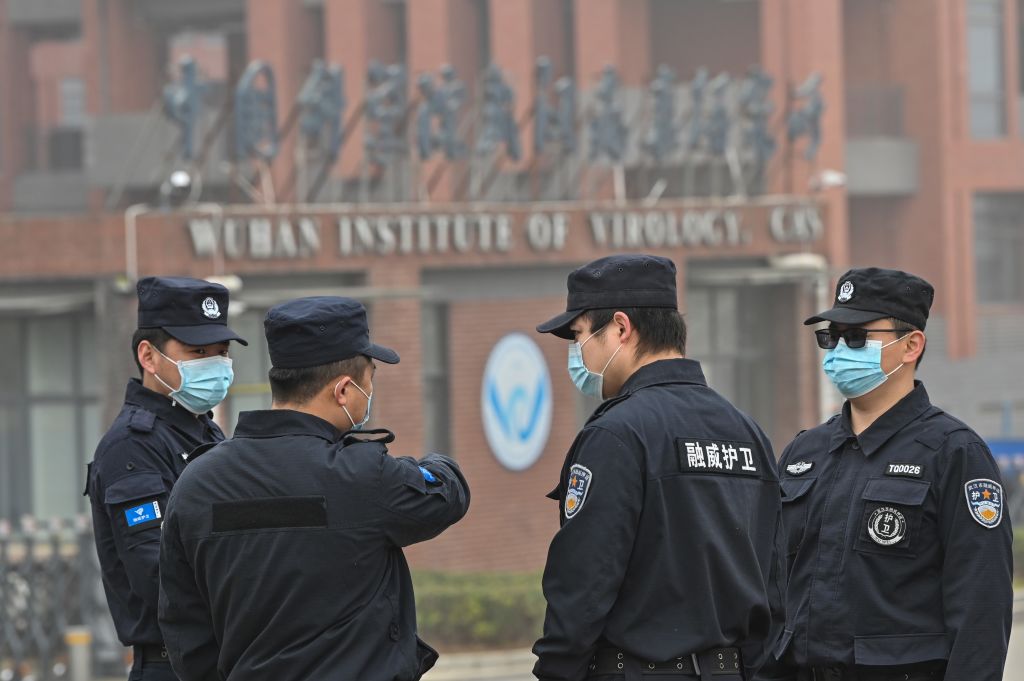The Trump administration tried hard to prove the COVID-19 Wuhan lab-leak theory, came up short


A free daily email with the biggest news stories of the day – and the best features from TheWeek.com
You are now subscribed
Your newsletter sign-up was successful
The Trump administration launched several separate investigations into the origins of the COVID-19 pandemic, and former President Donald Trump and other senior officials pressed hard for evidence the virus escaped from the Wuhan Institute of Virology, Politico and The Washington Post reported Tuesday. But nobody was able to find more than inconclusive and circumstantial evidence. President Biden ordered a new 90-day review of the intelligence last month.
By Feb. 1, 2020, the U.S. government's top scientists and medical experts had determined China did not engineer the new coronavirus, National Institutes of Health Director Francis Collins tells the Post. "I am not at all convinced that a natural origin is the only explanation; I've never been convinced," he said, but unless new evidence emerges, the coronavirus wasn't designed by humans.
On April 30, 2020, the Office of the Director of National Intelligence codified that view, saying in a statement the intelligence community "concurs with the wide scientific consensus that the COVID-19 virus was not manmade or genetically modified," and would continue working "to determine whether the outbreak began through contact with infected animals or if it was the result of an accident at a laboratory in Wuhan."
The Week
Escape your echo chamber. Get the facts behind the news, plus analysis from multiple perspectives.

Sign up for The Week's Free Newsletters
From our morning news briefing to a weekly Good News Newsletter, get the best of The Week delivered directly to your inbox.
From our morning news briefing to a weekly Good News Newsletter, get the best of The Week delivered directly to your inbox.
That statement "angered some officials in the State Department who had wondered whether the virus was designed as part of a secretive Chinese bioweapons program," the Post reports. Trump immediately told reporters he was highly confident the virus came from the Wuhan Institute of Virology, but he was "not allowed" to say why. Privately, Trump "told aides that he believed the intelligence agencies had concluded that the virus came from the lab," the Post reports. "The agencies had never reached that conclusion."
Secretary of State Mike Pompeo claimed three days later there was "enormous evidence" COVID-19 came from a lab, stoking "confusion elsewhere in the administration among some officials investigating COVID-19's origins," Politico reports. "He wanted a smoking gun, and we couldn't give it to him," one former official told the Post. Pompeo told the Post last week he became convinced of the virus' lab origins by "the cumulative amount of evidence" and "the absence of evidence for other theories."
"We never got to a smoking gun," said Anthony Ruggiero, who led one of the Trump COVID-19 investigations at the National Security Council. "Had Trump officials found a smoking gun," current and former officials assured the Post, "they would have said so."
A free daily email with the biggest news stories of the day – and the best features from TheWeek.com
Peter has worked as a news and culture writer and editor at The Week since the site's launch in 2008. He covers politics, world affairs, religion and cultural currents. His journalism career began as a copy editor at a financial newswire and has included editorial positions at The New York Times Magazine, Facts on File, and Oregon State University.
-
 Switzerland could vote to cap its population
Switzerland could vote to cap its populationUnder the Radar Swiss People’s Party proposes referendum on radical anti-immigration measure to limit residents to 10 million
-
 Political cartoons for February 15
Political cartoons for February 15Cartoons Sunday's political cartoons include political ventriloquism, Europe in the middle, and more
-
 The broken water companies failing England and Wales
The broken water companies failing England and WalesExplainer With rising bills, deteriorating river health and a lack of investment, regulators face an uphill battle to stabilise the industry
-
 A Nipah virus outbreak in India has brought back Covid-era surveillance
A Nipah virus outbreak in India has brought back Covid-era surveillanceUnder the radar The disease can spread through animals and humans
-
 Trump HHS slashes advised child vaccinations
Trump HHS slashes advised child vaccinationsSpeed Read In a widely condemned move, the CDC will now recommend that children get vaccinated against 11 communicable diseases, not 17
-
 Covid-19 mRNA vaccines could help fight cancer
Covid-19 mRNA vaccines could help fight cancerUnder the radar They boost the immune system
-
 FDA OKs generic abortion pill, riling the right
FDA OKs generic abortion pill, riling the rightSpeed Read The drug in question is a generic version of mifepristone, used to carry out two-thirds of US abortions
-
 The new Stratus Covid strain – and why it’s on the rise
The new Stratus Covid strain – and why it’s on the riseThe Explainer ‘No evidence’ new variant is more dangerous or that vaccines won’t work against it, say UK health experts
-
 RFK Jr. vaccine panel advises restricting MMRV shot
RFK Jr. vaccine panel advises restricting MMRV shotSpeed Read The committee voted to restrict access to a childhood vaccine against chickenpox
-
 Texas declares end to measles outbreak
Texas declares end to measles outbreakSpeed Read The vaccine-preventable disease is still spreading in neighboring states, Mexico and Canada
-
 RFK Jr. shuts down mRNA vaccine funding at agency
RFK Jr. shuts down mRNA vaccine funding at agencySpeed Read The decision canceled or modified 22 projects, primarily for work on vaccines and therapeutics for respiratory viruses
